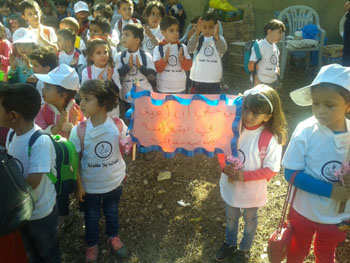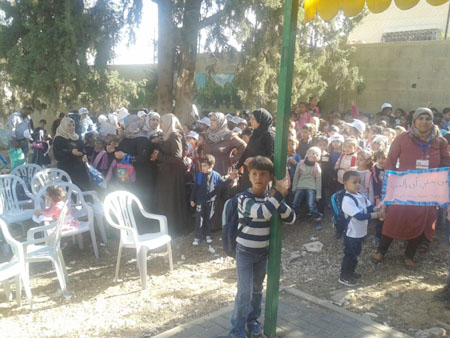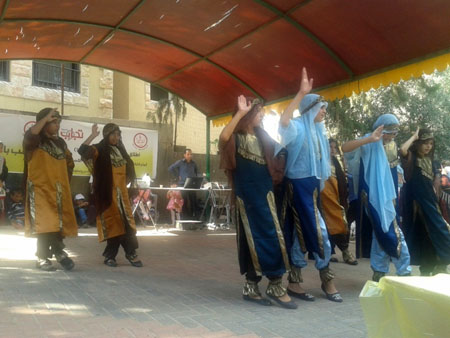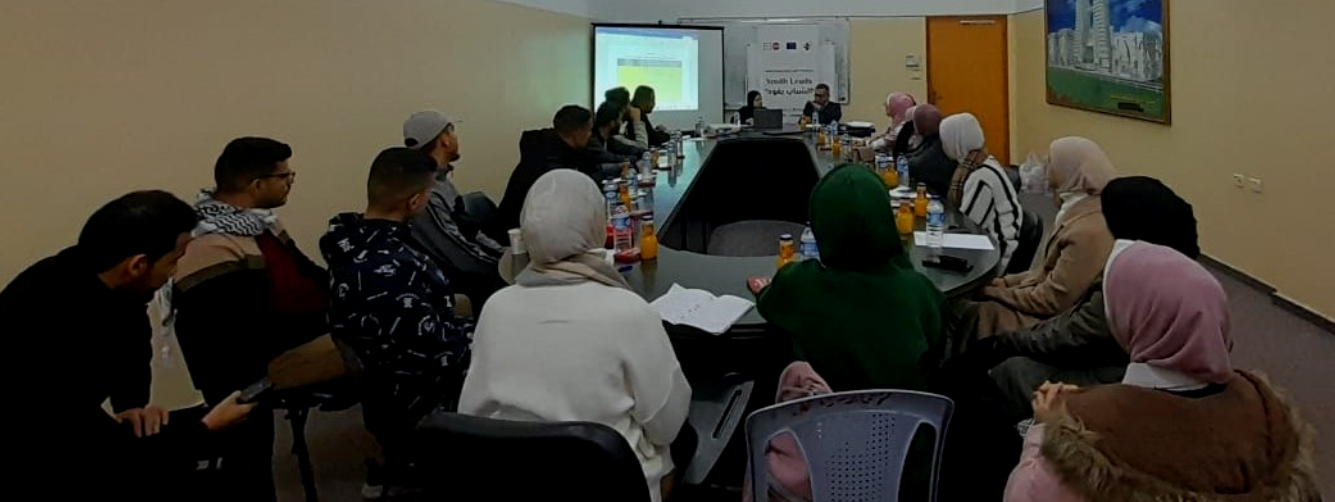
Ramallah – Thechildren of Hableh and other Qalqilya-area villages now have what they’ve been dreaming of for so long – a park where they can spend their free time with family and friends.
The dream was recently realized after the Hableh local committee launched a project to renovate and rehabilitate the abandoned park in the village. The inauguration was a huge celebration, attended by Hableh’s mayor, the Qalqilya governor and education officials from the area. MIFTAH, which offered support to the project through “Tajawoob” was also present in addition to a huge local crowd including townspeople, students and teachers.
Hableh major Yousef Saleh said the project will add vitality to the town, which is surrounded by Israeli settlements and the separation wall from all sides. “Once the park is completed, all of our children can enjoy it,” Saleh anticipates. “It will provide a safe place for more than 7,000 residents of Habla in addition to 5,000 people from neighboring villages and towns.”
Coordinator of the Hableh local committee and public relations director at the municipality SaleemOdeh said: “We decided that such a park would bring people and schoolchildren together, not only in Hableh but in the towns and villages around us.”
Odeh has high hopes. “Once the project its finished, it will make a huge difference for the children of our town, especially special needs children who lack this sort of facility. Also, it will provide a safe place for schoolchildren.”
Odeh explains that the parkinitiative will directly affect over 1,000 students from three preschools. “The project is aimed at creating a participatory and integral atmosphere with decision-makers towards the goal of good governance.”
The Qalqilya governorate, represented by AmjadKhatib, expressed its full support for the project along with any possible assistance it could offer to complete it. “This project has left a huge impact on the community. “Tajawoob” has created a sort of participatory cooperation between the community and decision-makers,” Khatib said.
The activity is part of the “Our Children without a Childhood” campaign, launched by the Hableh local committee, MIFTAH and its partners in “Tajawoob” and is aimed at promoting the concept of community participation. Hence, members of the committee, with support from MIFTAH, pressured decision-makers to respond to the demand of the town to provide a safe place for their children who have no appropriate and well-equipped place to play.

The subject for the campaign was chosen by the Hableh local committee involved with “Tajawoob”. The committee participated in a series of “KUMI” workshops revolved around the mechanisms and methodology of social transformation in conflict and on strategic planning. From this, it was able to specify its priorities as a committee representing the community of Habla. The committee then participated in a series of capacity-building workshops on leadership skills, advocacy and lobbying, social accountability and communications. From this, the local committee was able to launch advocacy and lobbying campaigns for one cause chosen at previous stages.
“Tajawoob” is being carried out in a number of marginalized areas of the West Bank, Gaza Strip and east Jerusalem, including Um Salmouna/Bethlehem, Froush Bet Djan/northern Jordan Valley, Qalqilya, Azzoun and Habla/Qalqilya district, and Mughraqa and Malha/Gaza. An consortium comprised of MIFTAH, AMAN, Ru’ya, OXFAM and BBC Media action are implementing these project in the targeted areas, under administration by the British Council and with funding from DFID.
In the next stage, which starts December 2014, the local committees in the targeted areas will lead new lobbying and advocacy campaigns for different priorities, which will also shed light on the needs of these areas to service providers and officials. This will prompt the latter to fulfill their responsibilities towards achieving their communities’ demands and therefore contributing to their social growth, in addition to promoting the steadfastness of residents in these areas in the face of constant measures by the Israeli occupation.








